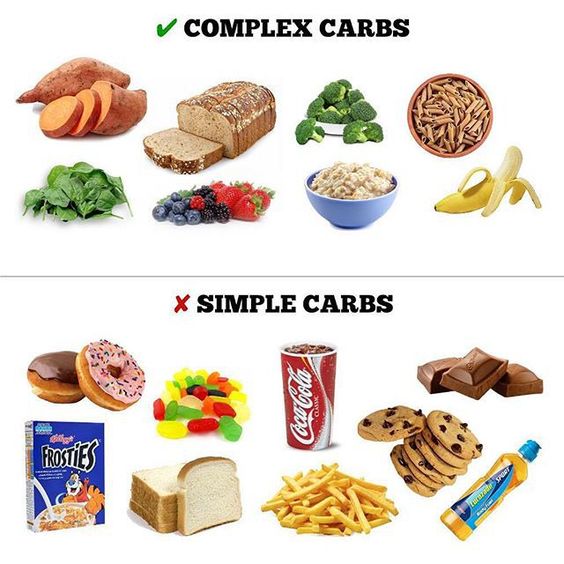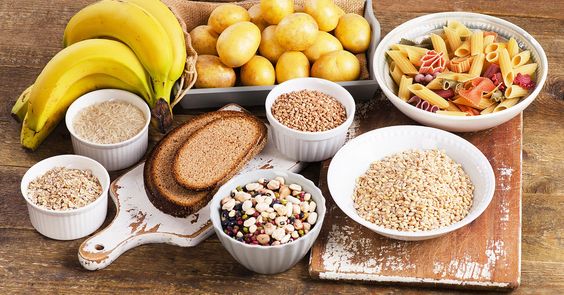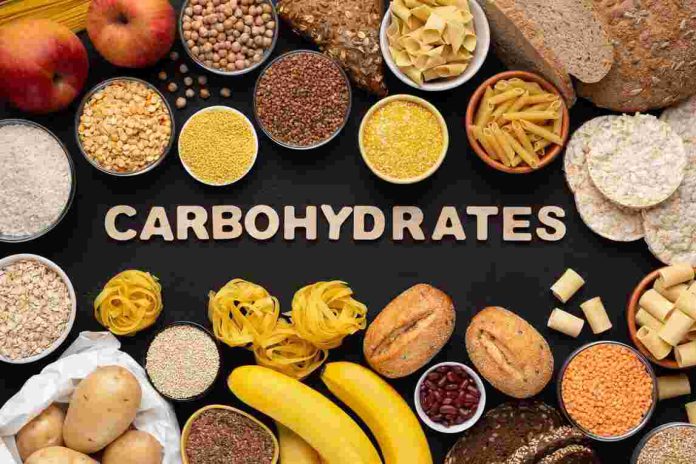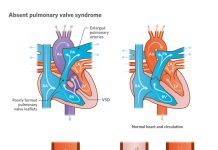Mencoret.com – We all know the basic types of carbohydrates. But did you know that carbohydrates come in different forms? Let’s take a look at some of them. For example, glucose is a ring containing five carbonyl carbons. Meanwhile, galactose contains six carbonyl carbons. While both sugars have the same general structure, they differ in their degrees of sugar content and crystalline forms. In plants, starch is the most common sugar and is found in seeds, roots and stems. It is stored in plants as an energy source.
In general, carbohydrates are not energy-dense

The macronutrient carbs are made of carbonyl molecules that break down into glucose, which is our body’s immediate energy source. Alternatively, we store glucose in our liver or muscles. In general, carbohydrates are not as energy-dense as fats or proteins, but they provide about the same amount of energy as proteins. That’s why they are an essential part of our diet. You should eat 25-30 grams of fibre per day.
If you’re wondering what carbohydrates are, consider that they are organic compounds with an oxygen-hydrogen atom ratio of 2:1. This makes them the main source of energy in our bodies. In fact, most carbohydrates are categorized as either polyhydroxic aldehydes or ketones. In addition to being a source of energy, carbs have various other functions in the body. Here are some types of carbohydrates:
Simple carbs cause your blood sugar to rise quickly

Simple carbohydrates are carbohydrates that contain simple molecules. They cause your blood sugar to rise quickly. They can make you tired, so if you eat these foods, you should limit their intake. However, you can still consume natural sugars in fresh fruit and milk. Soya contains natural sugars that do not contain any added sugars. So, it’s important to eat a balance of these two types of carbohydrates in your diet to get optimal benefits from them.
Complex carbohydrates are generally rich in fiber, vitamins, and minerals

Complex carbohydrates are best for those who want to get their energy from food in a slow stream. They’re good for snacking and can be consumed between meals. These are generally rich in fiber, vitamins, and minerals. Dietary fiber is another important carbohydrate. In addition to complex carbohydrates, you can also find complex carbohydrates in beans, legumes, and fruit. These complex carbohydrates are more difficult for the body to digest.
Complex carbohydrates contain a complex chain of sugar molecules. These carbohydrates can be found in whole grains and fresh vegetables. Because they are high in fibre, they do not spike blood sugar levels and help maintain minimal levels of insulin and other hormones. In addition, they contain more nutrients and are more slowly digested than simple carbohydrates. Complex carbohydrates, on the other hand, can be a good choice for those who want to lose weight.
Monosaccharides can be either glucose or fructose

Besides fructose, there are also other types of carbohydrates. The simplest type is glucose. This sugar is found in many natural products, but there is much debate about its effect on health. We’ll talk about it in a separate article. Monosaccharides can be either glucose or fructose, and they can join together to form disaccharides or oligosaccharides.
Avoid simple carbs

Carbohydrates are the primary energy source for our bodies. They are classified into three types – simple and complex. The latter are composed of sugar, while the former contains fibre and starch. These carbohydrates contain vitamins and minerals. These carbohydrates are easier for our bodies to digest, but they take longer to raise blood sugar levels. So, while you should avoid simple carbs, you should include more complex carbs in your diet.
Aim to get more fiber in your diet by consuming more high-fiber, nutrient-dense carbs. Not all carbs are created equal. To maximize their benefits, choose healthy high-fiber sources of carbohydrates. Refined carbs include baked goods, potato chips, pretzels, and white pasta. Similarly, nutrient-dense carbs include whole grains, legumes, and fruits.










